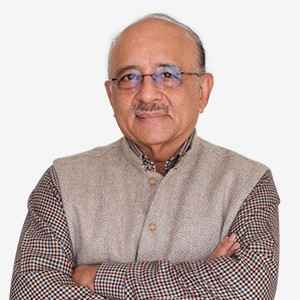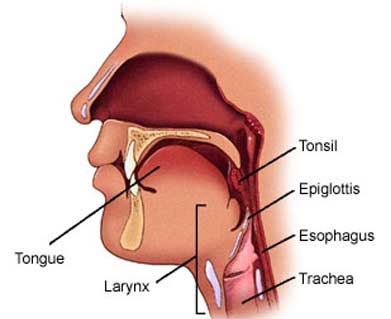What is Throat Surgery (Laryngeal Cancer, Vocal Cord Treatment)?
Throat surgery is a specialized procedure to treat various throat-related issues, such as laryngeal cancer and vocal cord problems. Laryngeal cancer affects the voice box and can lead to difficulties in breathing, speaking, or swallowing. Vocal cord treatment is crucial for restoring or preserving the voice, especially in cases where vocal cords are affected by tumors, lesions, or other disorders.
Why Choose India for Throat Surgery?
India offers world-class medical facilities with advanced technologies for laryngeal cancer treatment and vocal cord surgeries.
Key Advantages:
- Skilled Surgeons: India is home to renowned ENT surgeons with expertise in treating laryngeal cancer and vocal cord disorders.
- State-of-the-Art Facilities: Equipped with cutting-edge diagnostic tools and minimally invasive surgery options.
- Cost-Effective Treatment: Affordable procedures without compromising on the quality of care.
- Personalized Care: Emphasis on restoring both health and voice with a patient-centric approach.
Common Conditions Treated with Throat Surgery
- Laryngeal Cancer: Cancer affecting the larynx, leading to difficulty in speaking, breathing, and swallowing.
- Vocal Cord Nodules & Polyps: Growths on the vocal cords that affect voice quality, often caused by excessive vocal strain.
- Vocal Cord Paralysis: A condition where the vocal cords cannot move properly, affecting speech and breathing.
- Chronic Laryngitis: Inflammation of the larynx leading to hoarseness, often due to infection or irritation.
- Benign Tumors: Non-cancerous growths on the larynx or vocal cords that can cause breathing or swallowing problems.
Throat Surgery Procedures
- Laryngectomy (Partial/Total):
Removal of part or all of the larynx to treat advanced laryngeal cancer, often followed by voice rehabilitation. - Vocal Cord Surgery (Microlaryngoscopy):
A minimally invasive procedure to treat nodules, polyps, or lesions on the vocal cords. - Laser Surgery:
Uses a laser to remove tumors or abnormal growths on the vocal cords or larynx. - Endoscopic Surgery:
A less invasive technique to remove tumors or treat other vocal cord conditions using a thin, flexible scope. - Tracheotomy:
A surgical procedure to create an opening in the windpipe for easier breathing, often required after laryngeal cancer surgery.
Symptoms Indicating Throat Issues
If you notice any of the following symptoms, you may need to consult an ENT specialist:
- Persistent hoarseness or voice changes
- Difficulty swallowing or pain while swallowing
- Chronic sore throat or irritation in the throat
- Lump in the neck or throat
- Breathing difficulties or wheezing
- Chronic cough
Early diagnosis and treatment can improve outcomes and prevent complications.
Benefits of Throat Surgery Treatments
- Voice Restoration: Improved vocal quality and the ability to speak after treatment.
- Cancer Control: Successful treatment of laryngeal cancer improves life expectancy and quality of life.
- Enhanced Breathing & Swallowing: Surgical treatments help in improving breathing and swallowing function after cancer removal.
- Minimized Risk: Advanced, minimally invasive techniques reduce recovery time and complications.
Why Choose Healtour Solutions for Throat Surgery?
Healtour Solutions connects you with top ENT surgeons and hospitals in India for laryngeal cancer and vocal cord treatments.
Our Services Include:
- Access to top cancer treatment centers and vocal cord specialists.
- Assistance with diagnosis, treatment planning, and follow-up care.
- Full support with travel arrangements, accommodation, and hospital visits.
- Transparent pricing with no hidden fees.
- Personalized guidance for international patients.
Post-Treatment Care
Post-surgery care is crucial for successful recovery and maintaining vocal cord health.
Tips for Recovery:
- Follow prescribed medication and therapy for voice rehabilitation.
- Attend follow-up appointments to monitor healing and voice recovery.
- Practice vocal cord exercises if recommended.
- Protect the throat from strain or injury during recovery.
Frequently Asked Questions (FAQs)
- What is laryngeal cancer surgery?
Laryngeal cancer surgery involves the removal of cancerous tissues from the larynx, with options for partial or total laryngectomy based on the cancer's stage. - How long is the recovery time after vocal cord surgery?
Recovery time varies, but most patients resume normal activities within 1-2 weeks after vocal cord surgery. Full voice recovery may take several weeks. - Can vocal cord nodules heal on their own?
Vocal cord nodules often require surgery or voice therapy to heal properly and restore normal vocal function. - Is laser surgery effective for laryngeal cancer?
Yes, laser surgery is highly effective for removing early-stage tumors and abnormal growths on the larynx and vocal cords. - Will I need a tracheotomy after throat surgery?
A tracheotomy may be needed temporarily or permanently depending on the extent of the surgery and the patient's breathing needs. - Can I speak normally after a laryngectomy?
Speaking may be difficult after a laryngectomy, but with rehabilitation and voice prosthesis, many patients can learn to communicate effectively. - What causes vocal cord paralysis?
Vocal cord paralysis can result from nerve damage, injury, infections, tumors, or neurological conditions. - Is throat surgery for cancer painful?
Modern techniques ensure that patients experience minimal pain, with adequate pain management provided during recovery. - How long does it take to heal after a laryngeal cancer surgery?
Healing time after laryngeal cancer surgery depends on the procedure but typically ranges from several weeks to a few months. - Can vocal cord treatment help with hoarseness?
Yes, vocal cord treatment can significantly improve hoarseness and restore vocal quality in most cases.






